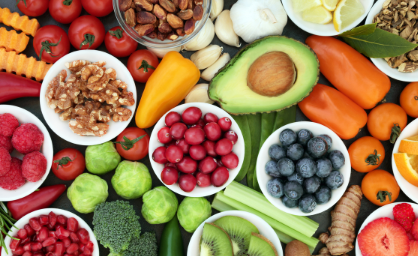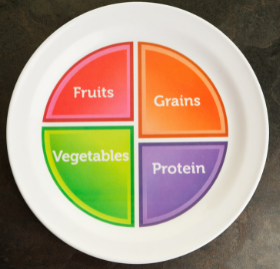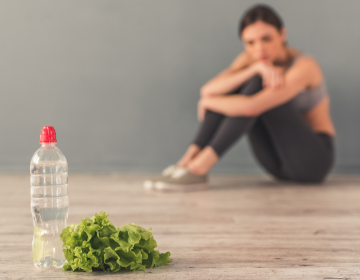
After fasting, it is natural that you get very hungry, and the first thing you want to do is load up with your favorite dish. Actually, there is nothing wrong with this. The problem is your choice of meals. Are these the best foods to eat after Ramadan fasting?
For a long time, humans have been fasting, either for religious reasons or simply because they do not have any food. But in recent years, fasting, commonly known as intermittent fasting, has become the latest health and fitness trend.
Fasting lasts for a particular period of time, after which you have to end the fast by eating. Eating the wrong food after fasting not only negates the benefit of the fast, but it may also cause unpleasant side effects such as bloating and stomach pain.

There are different suggestions on the best foods to eat after fasting, but the summary of them all is that these should be natural foods (not processed), easily digestible, and low in carbs and sugar. Some of the best foods to eat after fasting are:
You can end your fast with zero-calorie fluids such as water and coffee or fluids with natural sugar and nutrients for energy, such as fruit and vegetable juice, smoothies, soups, and broths.
Vegetables such as spinach and kale are healthy, light, and loaded with lots of nutrients such as vitamins C, K, A, E, and B6 and minerals such as folate, potassium, magnesium, iron, and calcium.
Leafy greens are also a rich source of fibre, which helps to keep you fuller for longer, promotes weight loss, regulates blood sugar levels, supports digestion, and prevents constipation.
You can eat leafy vegetables as soups, salads, juices, or smoothies.
Eggs are one of the best foods for breaking a fast. They are low in calories, rich in protein, a source of healthy fat, and can keep you satiated for longer.
Eggs are rich in leucine, an amino acid that, according to research, helps in muscle building, regulation of blood sugar levels, aids in weight loss, and promotes growth and development, especially in children.
Fish are a good source of protein, healthy unsaturated fats, and vitamin D. Fish should be on your list of the best foods to eat after fasting. You can enjoy it as a fish soup or broth.
Foods such as yogurt, Kefir. Yogurt, especially unsweetened yogurt, is one of the best foods to eat after fasting. During fasting, you may lose some of the bacteria in your gut.
Fermented foods can help replenish those good bacteria and promote a healthy gut as they contain probiotics. A healthy gut helps in digestion, boosts immunity, and, according to a recent study, promotes weight loss.
Fruits are another great food to take after fasting. It can be fresh or dried fruit. Fruits are a good source of micronutrients and fibre. When choosing fruits to eat at the end of your fast, go for fresh fruits that are high in water content, such as watermelon, cucumber, and grapes.
Aside from hydrating you, they are easy to digest and contain lots of minerals and vitamins, so they can quickly energize you and replenish your body with nutrients.

Although our bodies react differently to different foods, it is advised that after fasting, you should avoid foods that can make you uncomfortable and spike your blood glucose levels. Some of the foods to avoid may include:

Note that fasting is not recommended for everyone. Children, pregnant women, the elderly, and people with a history of eating disorders should not fast except with the approval of a qualified doctor.
Although there are no set dietary guidelines on the best foods to eat after fasting, it is recommended that you choose foods that will help you achieve your health and fitness goals without any discomfort.
Truth is, regardless of your health condition, to be on a safe side, it is pertinent to discuss fasting with your physician to ensure you have the right plan in place.
Talk to a doctor within minutes on KompleteCare.
It is important that you consult a doctor before fasting if you have underlying health issues like hormonal imbalance, Polycystic Ovarian Syndrome (PCOS), migraine, and diabetes. You can consult with healthcare professionals from the comfort of your home through telemedicine. Telemedicine brings your medical services to your doorstep.
Fasting is very good for your well-being; it reduces insulin resistance, decreases inflammation, and boosts brain function. Get a better way to fast in regards to your body type and your health condition through the use of a telecommunication device.
1. What is the best food to eat after fasting Ramadan?
Your body needs healthy nutrition now more than ever to make up for the stress of fasting. To ensure that your body gets all the nutrients it needs, it’s vital to eat a variety of foods such as whole grains, fruits, vegetables, lean protein, and healthy fat (derived from plants like nuts and olive oil).
2. What is the best food to eat after fasting?
Soups with easily digested carbohydrates and protein, including lentils or tofu, can help break a fast softly. Steer clear of soups that contain a lot of raw, high-fiber veggies or heavy cream.
3. What is the big meal after Ramadan?
Iftar
Iftar is typically a substantial meal that is followed by a second, lighter dinner eaten prior to the taraweeh and night (isha) prayers. People in Hyderabad and the surrounding areas frequently eat haleem for breakfast because it is a satisfying and rich food.
4. What foods keep you full when fasting?
Because they are strong in fiber, fruits, vegetables, and whole grains can help maintain a sensation of fullness and satisfaction. Proteins and healthy fats can also help with satiety. Drinks may contribute to satiety in people on the 16:8 intermittent fasting diet.
5. What not to eat after fasting?
By avoiding certain foods, you can avoid overburdening your digestive system and experiencing adverse reactions.
Avoid highly processed meals heavy in sugar, fats, and calories while breaking a fast. Other foods to stay away from include coffee, meat, nuts, seeds, legumes, and raw, high-fiber fruits and vegetables. 6. What foods are healthy for Ramadan?
Healthy foods should be mostly consumed during Ramadan. When it comes to easing constipation during Ramadan, it may be helpful to eat a lot of high-fiber foods (like wholegrains, high-fiber cereals, bran, fruit and vegetables, beans, lentils, dried fruit, and nuts) and drink a lot of fluids. You could also consider engaging in some light physical activity, like taking a walk after iftar.
7. What foods keep you hydrated during Ramadan?
Foods high in water: fruits and vegetables high in water in your meal, such as oranges, tomatoes, cucumbers, and watermelons.
8. Which Fruit is best for fasting?
The best fruit for fasting is a fruit in high water, vitamin, and enzyme content. Fruits are generally beneficial for your body, especially in aiding in the body’s cleansing process. Melons, oranges, and grapes are a few of these. Papayas, pineapples, papayas, lemons, and apples are additional well-liked fruits.
British Nutrition Foundation. (2024). A healthy Ramadan.
Cornell Health. (n.d). Tips for healthy Ramadan fasting.
Leonard, J. (2023). A guide to 16:8 intermittent fasting.
Mitri, M. (2023). Foods to avoid when breaking a fast.
Panoff, L. (2023). What breaks a fast? Foods, drinks and supplements.
SpaDreams. (n.d). Fruit fasting therapy.
healthcareAugust 20, 2025
healthcareSeptember 10, 2025








